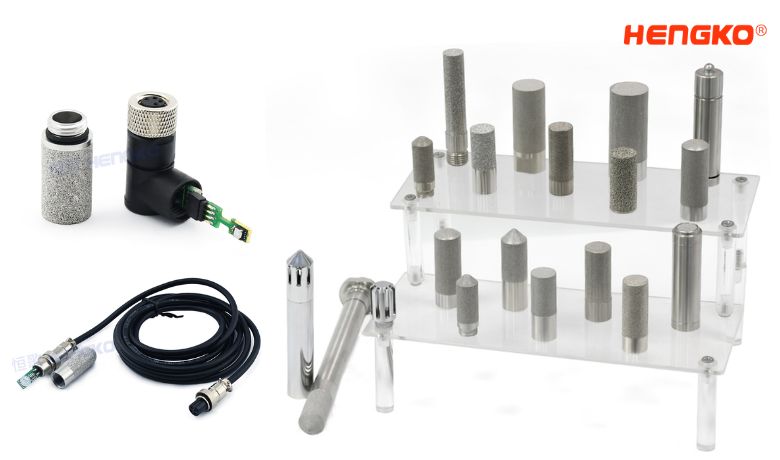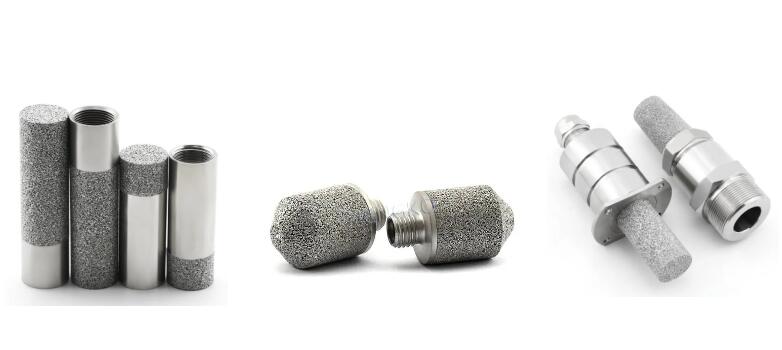-
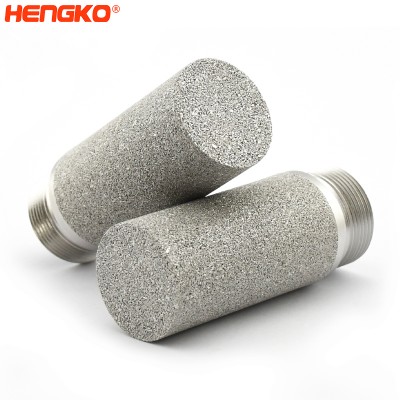
RHT35 sintered metal powder protected weather-proof temperature humidity sensor probe h...
HENGKO stainless steel sensor shells are made by sintering 316L powder material at high temperatures. They have been widely used in environmental protection,...
View Detail -
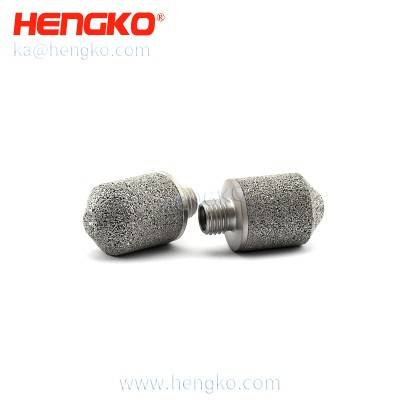
RHT30 0~100%RH Sintered 316L Stainless Steel Filter – HK103MBU Temerature Humidit...
HENGKO stainless steel sensor shells are made by sintering 316L powder material at high temperatures. They have been widely used in environmental protection,...
View Detail -
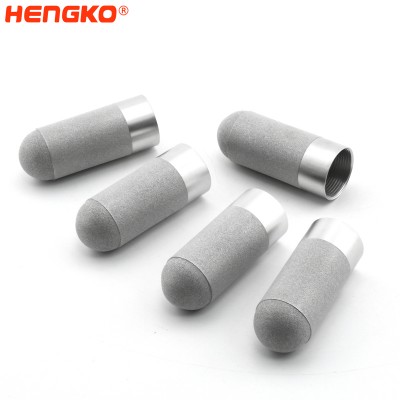
HENGKO rs485 waterproof grain humidity sensor stainless steel porous sensor protection ...
HENGKO stainless steel sensor housing is made by sintering 316L powder material at high temperatures. They have been widely used in environmental protection,...
View Detail -
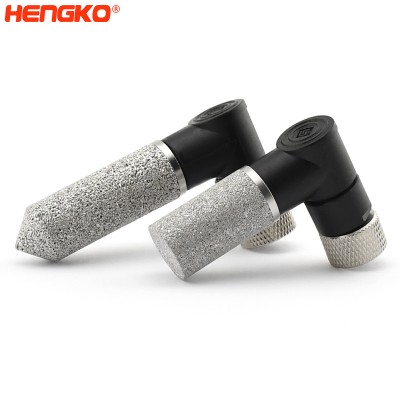
RHT31 protection wireless resistance I2c digital temperature and humidity sensor probe
HENGKO stainless steel sensor shells are made by sintering 316L powder material at high temperatures. They have been widely used in environmental protection,...
View Detail -
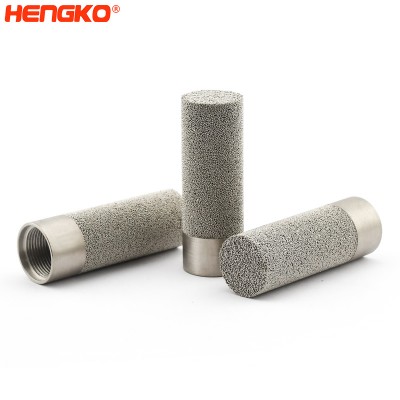
HK66MBN stainless steel porous humidity sensor housing – stainless steel sintered...
HENGKO stainless steel sensor shells are made by sintering 316L powder material at high temperatures. They have been widely used in environmental protection,...
View Detail -
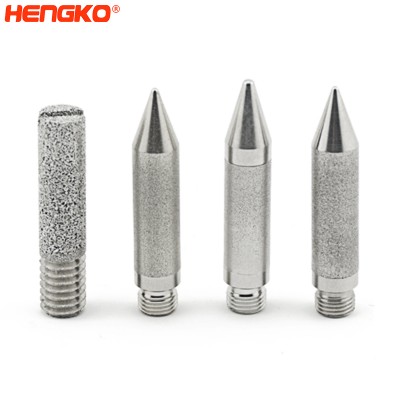
RHTX Series mesh-protected weather-proof humidity sensor probe housing
HENGKO stainless steel sensor shells are made by sintering 316L powder material at high temperatures. They have been widely used in environmental protection,...
View Detail -
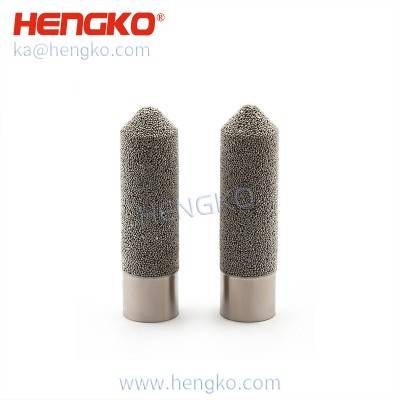
HENGKO waterproof grain moisture humidity sensor, sintered stainless steel metal sensor...
HENGKO stainless steel sensor shells are made by sintering 316L powder material at high temperatures. They have been widely used in environmental protection,...
View Detail -
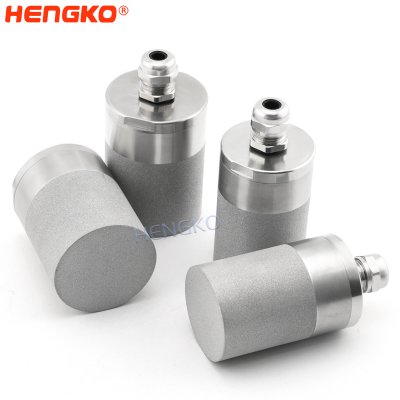
Waterproof IP67 wholesale sintered stainless steel network temperature and humidity sen...
HENGKO stainless steel sensor shells are made by sintering 316L powder material at high temperatures. They have been widely used in environmental protection,...
View Detail -
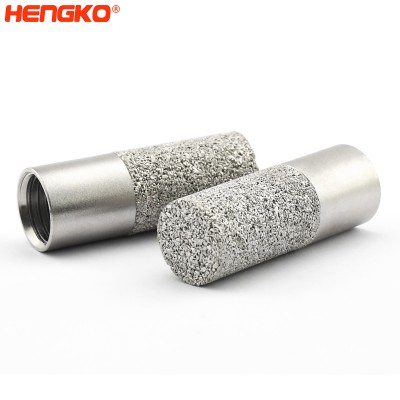
HK66MEN temperature and humidity sensors protection cover casing, Micron porous stainle...
HENGKO temperature and humidity probe consist of high precision RHTx series sensor module, one meter 4-pin cable, sintered metal filter cap, cable gland, etc...
View Detail -
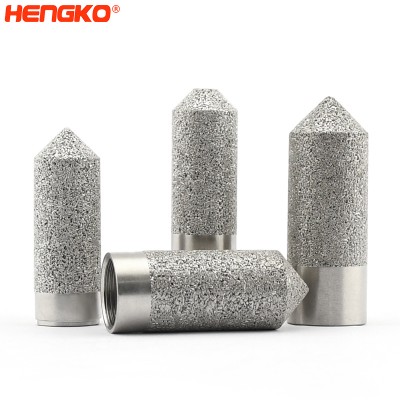
OEM ODM Digital HSY1MBN sintered humidity sensor housing for vaccine cold chain tempera...
HENGKO stainless steel sensor shells are made by sintering 316L powder material at high temperatures. They have been widely used in environmental protection,...
View Detail -
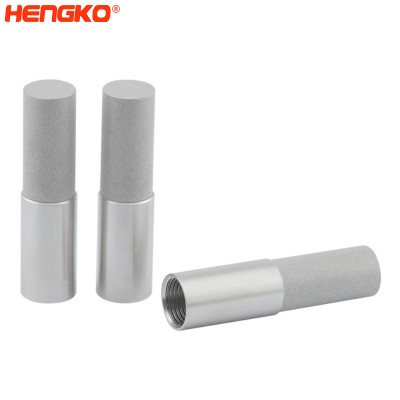
Waterproof I2C temperature humidity sensor stainless steel 316L sensor protection enclo...
HENGKO digital temperature and humidity module adopts high precision SHT series sensor equipped with a sintered metal filter shell for large air permeability...
View Detail -
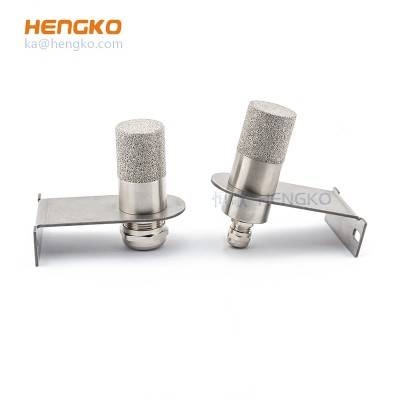
humidity sensor housing protective humidity sensor, used sintered filter
In principle, the sensors do not require any maintenance. However, the dynamic behavior of the sensor may be affected if it is exposed to too much dust. So t...
View Detail -
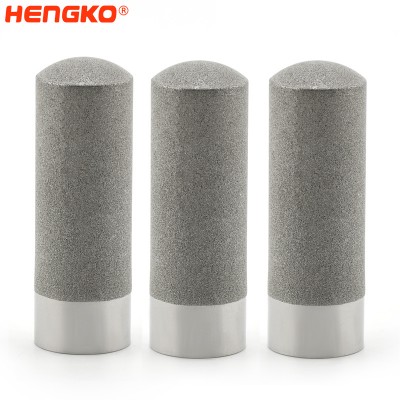
Sintered stainless steel sensor probe housing for digital egg incubator temperature hum...
HENGKO temperature and humidity probe consist of high precision RHTx series sensor module, one meter 4-pin cable, sintered metal filter cap, cable gland, etc...
View Detail -
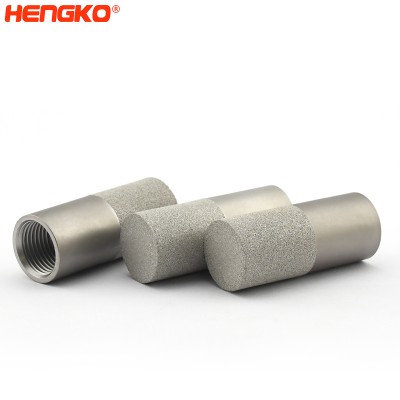
HK82MDN Stainless steel temperature and humidity sensor housing enclosure case for indu...
HENGKO temperature and humidity probe consist of high precision RHTx series sensor module, one meter 4-pin cable, sintered metal filter cap, cable gland, etc...
View Detail -
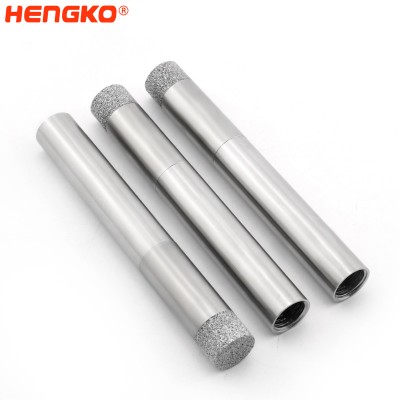
IP65 IP66 waterproof sintered metal stainless steel HVAC relative temperature and humid...
HENGKO stainless steel sensor housing is made by sintering 316L powder material at high temperatures. They have been widely used in environmental protection,...
View Detail -
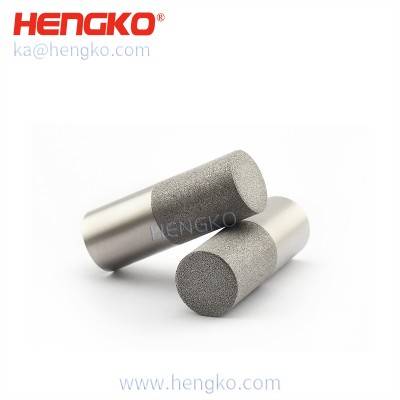
HK66MCN 30um weatherproof temperature and humidity sensor probe housing
HENGKO stainless steel sensor shells are made by sintering 316L powder material at high temperatures. They have been widely used in environmental protection,...
View Detail -
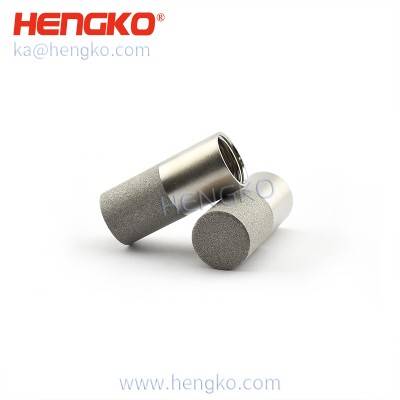
HK83MEN waterproof sintered stainless steel humidity sensor housings for humidity trans...
HENGKO stainless steel sensor shells are made by sintering 316L powder material at high temperatures. They have been widely used in environmental protection,...
View Detail -
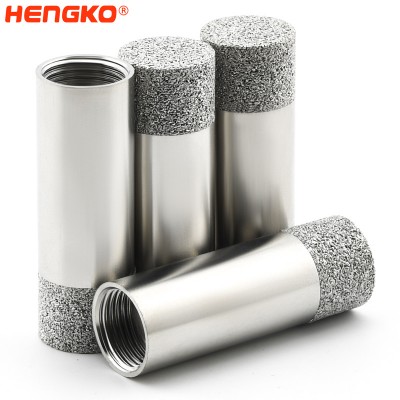
Excellent Long-term Stability Temperature And Humidity Sensor With Stainless Steel Prot...
HENGKO high temperature and humidity probe adopt high precision RHT series sensor equipped with a sintered metal filter shell for large air permeability, fa...
View Detail -
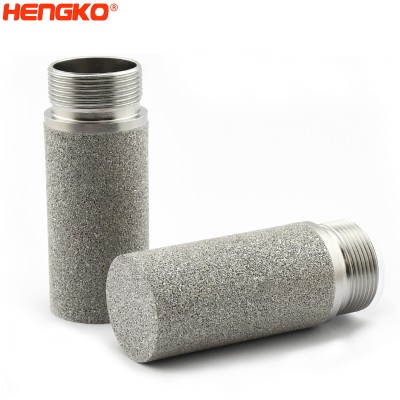
Waterproof IP66 humidity sensor housing to protect temperature humidity probe RHT30
HENGKO humidity sensor housing is made by sintering 316L powder material at high temperatures. They have been widely used in environmental protection, petrol...
View Detail -
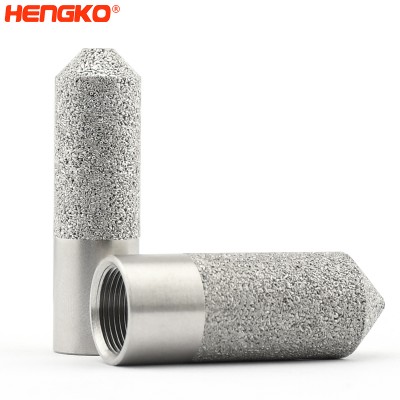
Wall-mounted digital temperature and humidity probe series – sintered stainless s...
HENGKO stainless steel sensor shells are made by sintering 316L powder material at high temperatures. They have been widely used in environmental protection,...
View Detail
Main Features of Sintered Stainless Steel Sensor Housing Probe :
Sintered stainless steel sensor housing Probe is a durable and reliable option for temperature and humidity sensors used in industrial applications. Here are some of its main features:
1. Corrosion-resistant:
Sintered stainless steel sensor housing is resistant to corrosion, making it ideal for use in harsh and corrosive environments. This feature ensures that the sensor housing will last longer and require less maintenance.
2. High-temperature tolerance:
Sintered stainless steel sensor housing can withstand high temperatures without degrading or failing. This feature enables the sensor housing to be used in high-temperature applications without compromising accuracy or reliability.
3. High-pressure tolerance:
Sintered stainless steel sensor housing can withstand high pressures without deforming or cracking. This feature allows the sensor housing to be used in applications where pressure fluctuations are common.
4. Chemical resistance:
Sintered stainless steel sensor housing is resistant to a wide range of chemicals, making it ideal for use in applications where exposure to chemicals is common. This feature ensures that the sensor housing will not degrade or fail in the presence of chemicals.
5. High porosity:
Sintered stainless steel sensor housing has high porosity, which allows for the free flow of air and other gases. This feature ensures that the sensor housing will provide accurate readings and can be used in applications where ventilation is important.
Overall, sintered stainless steel sensor housing Probe is a reliable and durable option for temperature and humidity sensors used in industrial applications.
Its corrosion resistance, high-temperature tolerance, high-pressure tolerance, chemical resistance, and high porosity make it an ideal choice for a wide range of applications.
What is the Function of the Temperature and Humidity Sensor Housing ?
The temperature and humidity sensor housing is a protective enclosure that is used to enclose and protect
temperature and humidity sensors. The housing serves several important functions:
1. Protecting the Sensor: The housing helps to protect the sensor from physical damage and other
environmental factors that could affect its accuracy and performance.
2. Improving Accuracy: The housing can help to improve the accuracy of the sensor by providing a
stable and controlled environment for the sensor to operate in.
3. Reducing Interference: The housing can help to reduce interference from external factors such
as vibration, electrical noise, and other sources that could affect the accuracy of the sensor.
4. Enhancing Durability: The housing can help to improve the overall durability of the sensor by
protecting it from wear and tear and other sources of damage.
5. Mounting the Sensor: The housing may also include mounting features, such as mounting
holes or brackets, that allow the sensor to be securely mounted in a desired location.
Overall, the temperature and humidity sensor housing plays a critical role in protecting and
improving the performance of temperature and humidity sensors.
Why Work With HENGKO for the Humidity Sensor Housing ?
To ensure precise temperature and humidity detection, we rely on a sintered stainless steel sensor housing.
At HENGKO, we have over 20 years of experience in producing sintered melt filters and sintered stainless steel filters.
Five years ago, we began focusing on sintered sensor housing and have since expanded our options to offer
O.E.M sintered sensor housing for temperature and humidity sensors in any design.
HENGKO is now recognized as one of the best sensor housing manufacturers in China.
What We Can Supply for You
1. Professional Solution for the Design for the Sensor Housing and Humidity Probe
2. Fast Manufacturing and Delivery because of stock materials
3. Supply Full O.E.M Sensor Housing Service, Make Your Design Fast
Applications of Sintered Humidity Sensor Housing
Where to Use for the Stainless Steel Humidity Sensor Housing ?
1. Humidity Sensor Protect Cover
2. Temperature Sensor Probe Housing
3. P.H Sensor Housing & ORP Sensor Housing
4. Dew Point Transmitter Probe Sensor Cover
5. Gas Sensor Housing
6. Outdoor Temperature Sensor Housing
7. Explosion Proof Gas Detector
8. More other Probe Housing
9. Temperature And Humidity Probe

What Kind of Sensor Housing We Can Supply ?
We have main 3 kind of sensor housing
1. Stainless Steel Female Thread
2. Stainless Steel External Thread
3. Stainless Steel With Air Nozzle
4. O.E.M Pore Size as your requirements.
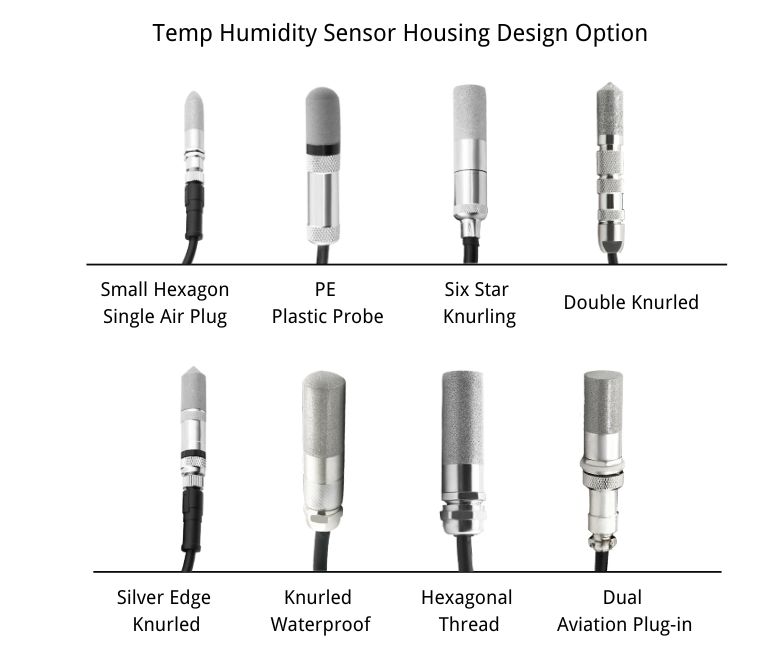
For the size of thread and nozzle, please confirm with salesman if we have
your same diameter before place the order .
Also we supply O.E.M size service of the Female Thread, External Thread
and Air Nozzle.
How to O.E.M Sensor Housing Porbe For Your Device ?
Here is the O.E.M Sensor Housing Process List, Please Check it .
HENGKO is committed to facilitating a better understanding, purification, and utilization of matter for everyone, thus making life healthier for over 20 years.
Here's how to engage with HENGKO:
1. Initial Consultation and Contact with HENGKO
2. Joint Development Effort
3. Contract Agreement
4. Design & Development Phase
5. Approval from Customer
6. Fabrication and Mass Production
7. System Assembly
8. Testing and Calibration
9. Shipment and User Training
We look forward to being of service!
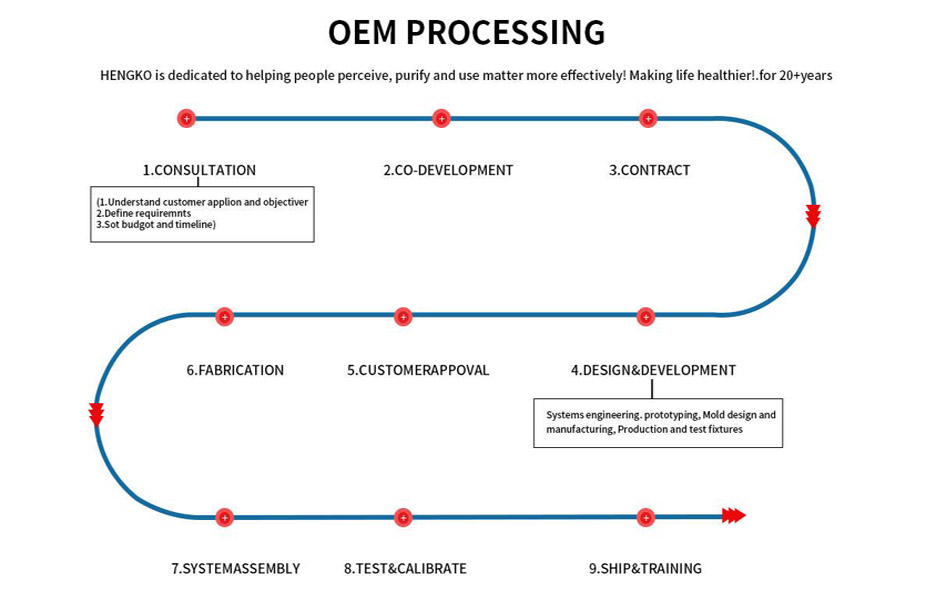
HENGKO, One of Experienced Factory that provides variety temperature and humidity sensor housing for
many applications with partner all over the world.
What is the Best Protect Housing for the Temperature
Sensor, Humidity Sensor, Gas Sensor, Pressure Sensor ?
For Temperature Sensor, Always need one Housing to protect the sensor chip, Then one
important question for the temperature sensor housing.
Here we listed 3 main requires for the sensor housing, please check it.
1. Need to ensure the gas is the same inside and outside the housing
2. The Sensor Housing structure need to be strong, not easy to broken
3. It's better the sensor can suitable for use in many different, inclement weather, temperature
How do you think this answer ? if so, the sintered 316L sensor housing will be one of your
best choice when you wholesale Temperature sensor housing or Humidity Sensor Housing.
Because the sintered stainless steel is the better sensor housing materials.
Frequently Asked Questions
Here are some frequently asked questions about temperature and humidity sensor housings:
1. What is a temperature and humidity sensor housing Probe used for?
A temperature and humidity sensor housing is used to enclose and protect temperature and humidity sensors.
It helps to protect the sensor from physical damage and environmental factors that could affect its accuracy and performance.
2. What are the main types of temperature and humidity sensor housings?
There are several types of temperature and humidity sensor housings, including plastic housings,
metal housings, and waterproof housings.
The type of housing used will depend on the specific requirements of the application and
the environment in which the sensor will be used.
3. Can a temperature and humidity sensor housing probe be customized?
Yes, many temperature and humidity sensor housings can be customized to meet the specific needs of an application.
Customization options may include the size and shape of the housing, the material used,
and the inclusion of additional features such as mounting holes or connectors.
4. How do I mount a temperature and humidity sensor in a housing?
To mount a temperature and humidity sensor in a housing, follow the manufacturer's instructions
for the specific sensor and housing being used.
In general, the sensor is placed in the housing and secured in place using screws, clips, or other fasteners.
5. How do I maintain a temperature and humidity sensor housing probe?
To maintain a temperature and humidity sensor housing, follow the manufacturer's recommendations
for cleaning and care. In general, it is important to keep the housing clean and free of debris, and to
protect it from physical damage and exposure to harsh environments.
6. Where can I buy a temperature and humidity sensor housing probe ?
Temperature and humidity sensor housings can be found at many retailers, including online stores,
scientific equipment suppliers, and electronics stores.
Additionally, used housings can be purchased through online marketplaces or specialized equipment dealers.
It is important to choose a reputable seller and carefully review the specifications and features of the housing to
ensure it meets your needs. If you have special requirements for the temperature and humidity sensor housing,
you are welcome to contact HENGKO to discuss OEM options for your monitoring project.
Contact Us if Want to Customize temperature and humidity sensor Housing for your sensor probe, please
do not hesitate to send inquiry by email ka@hengko.com, we will reply within 24-hours. supply O.E.M Solution
